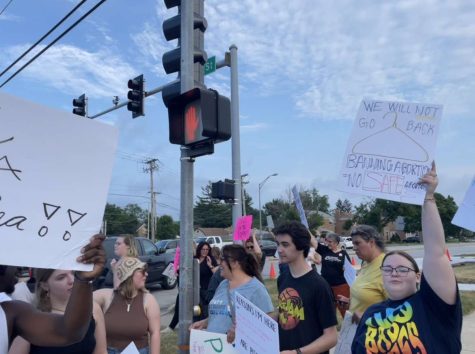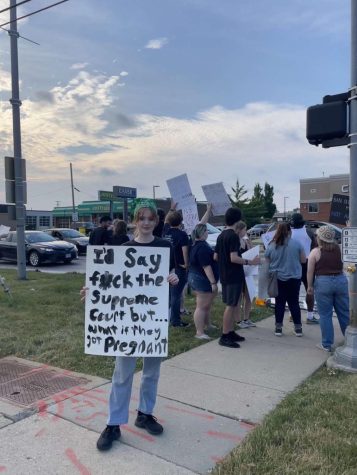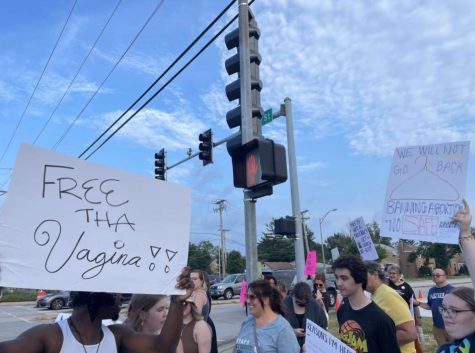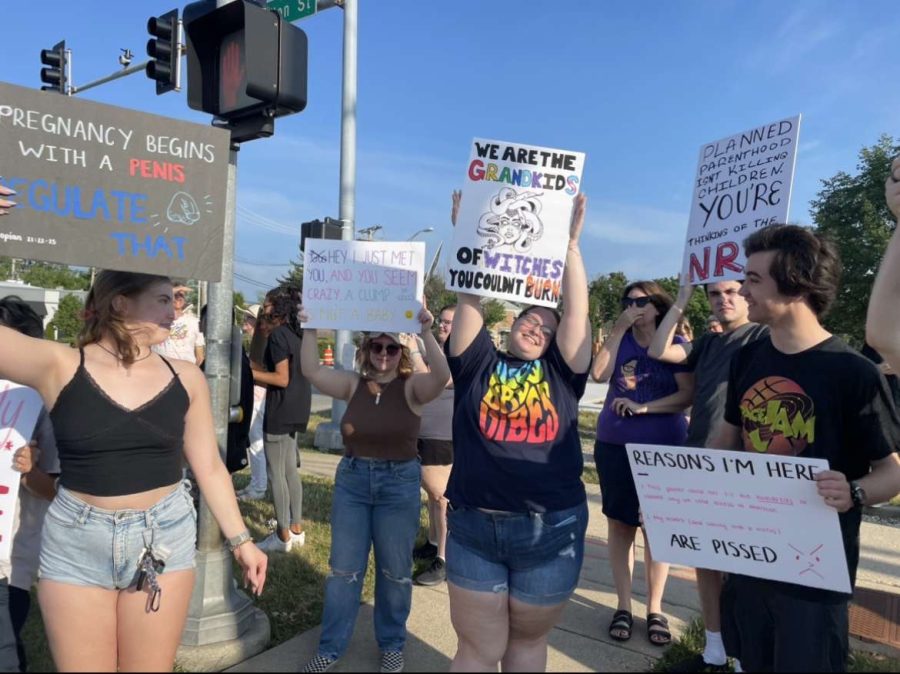Roe v. Wade overturned in 5-4 supreme court decision : what now for Illinois?
July 13, 2022
The summer of 2022 is certain to go down in the history books– five Supreme Court Justices made sure of that when they voted to overturn Roe v. Wade, a court decision that once protected a woman’s right to choose abortion.
Since news of the fifty-year-old law’s demise became public knowledge on June 24, City Halls and Squares have been flooded by seas of hand-made signs ranging from both sides of the political spectrum. One Reproductive Rights protest, held in Des Plaines on the intersection of Oakton and Lee, occurred on July 6.
“The idea that a nation would empower its citizens to strip a basic form of humanity– the right to make your own decisions– from half its population is inhumane,” said student Alexis Mitchell. “Part of being human is being able to make your own decisions.”

According to the Guttmacher Institute, at least 30 states have banned or are in danger of banning abortion. While this leaves 20 states and the District of Colombia likely to protect the right to choose, abortion facilities fear an overwhelming future.
Jennifer Welch, President and CEO of Planned Parenthood of Illinois, voiced new concerns when attending a conversation on WBEZ, NPR radio in Chicago. “About 10 percent of our budget was Title X funding. So imagine the risk to all of those patients across the state,” said Welch. “Here in Illinois, it means $3.5 million of funding lost. That’s the grant our organization had for this year. As I mentioned, we served about 70,000 patients. So what you have is tens or thousands of patients whose care is at risk because of this regulation.”
Federalism has allowed each state to make its own decision on abortion. This federalist approach is very American, but has caused experts to predict a new slew of problems. It is almost inconceivable to contemplate that while a woman can legally seek abortion in Illinois, she might be criminalized across the Iowa border.
“There may be no abortion access in between Illinois and Colorado,” said Welch. “Patients could be coming to us from a number of states, a large swath of the Midwest and the Great Plains. And that’s what we are preparing for.”
Medical professionals of Illinois have made it clear that it is against medical ethics and that it violates their ability to provide care. While some states have made exceptions for rape and incest, others have not, and the exceptions written to save the mother’s life lack specifications. Does a doctor know when to draw the line?

“We refuse to let our (Illinois’) medical professionals be gagged by these regulations,” said Welch.
Without access to safe, affordable abortions, women will result to dangerous options. “The right to choose being threatened due to theological beliefs not only sets women back by centuries, but it also effectively invalidates the foundation of the United States,” said Mitchell.
Regardless of political stance or personal opinion, it is evident that the collateral damage of this decision is yet to be unveiled. When women of the future glance over their shoulder, June 24, 2022 will stare back at them.

(A podcast discussing the Jane Collective, the story of an underground abortion service that operated pre-Roe vs. Wade, is accessible through this link): https://www.radiodiaries.org/women-of-jane/


